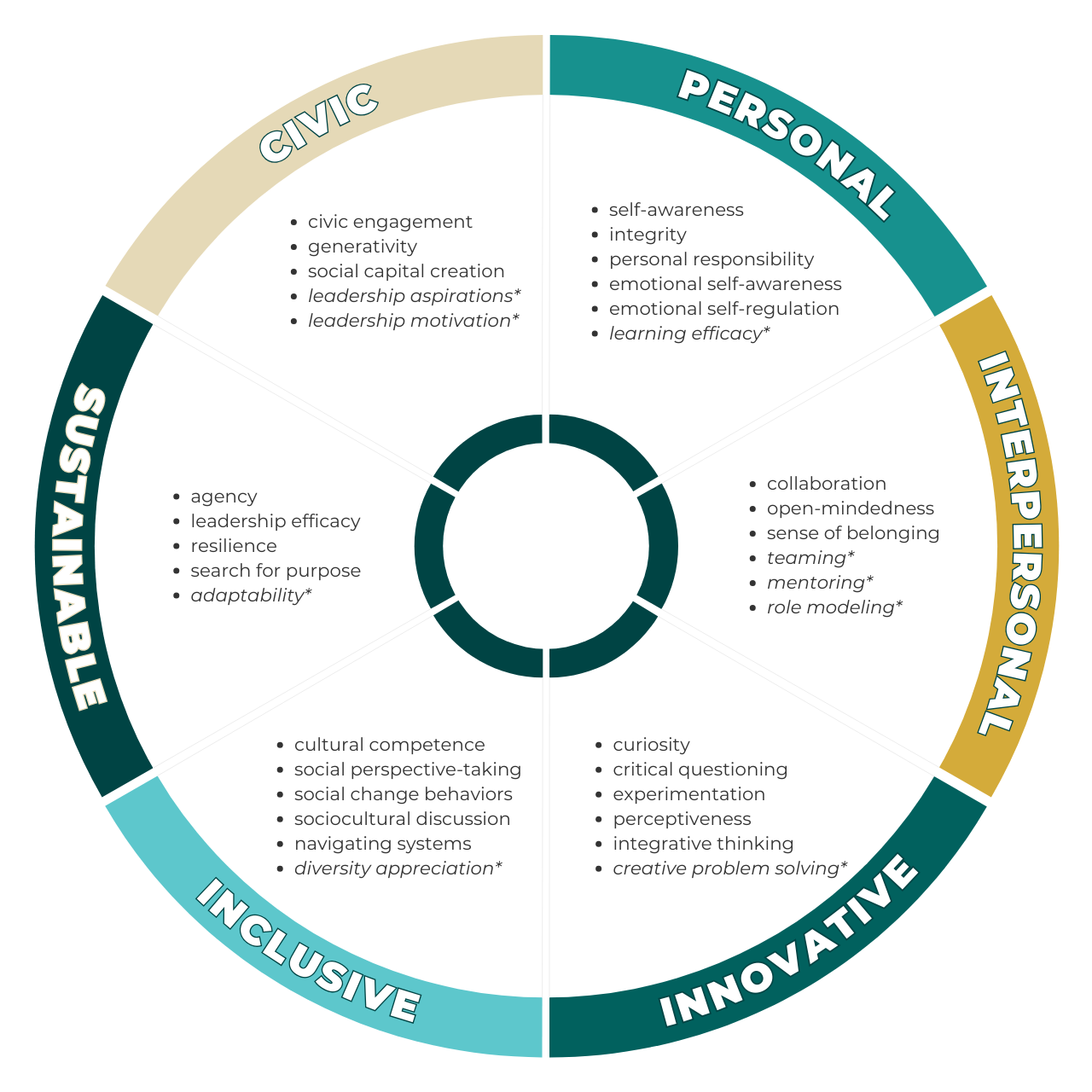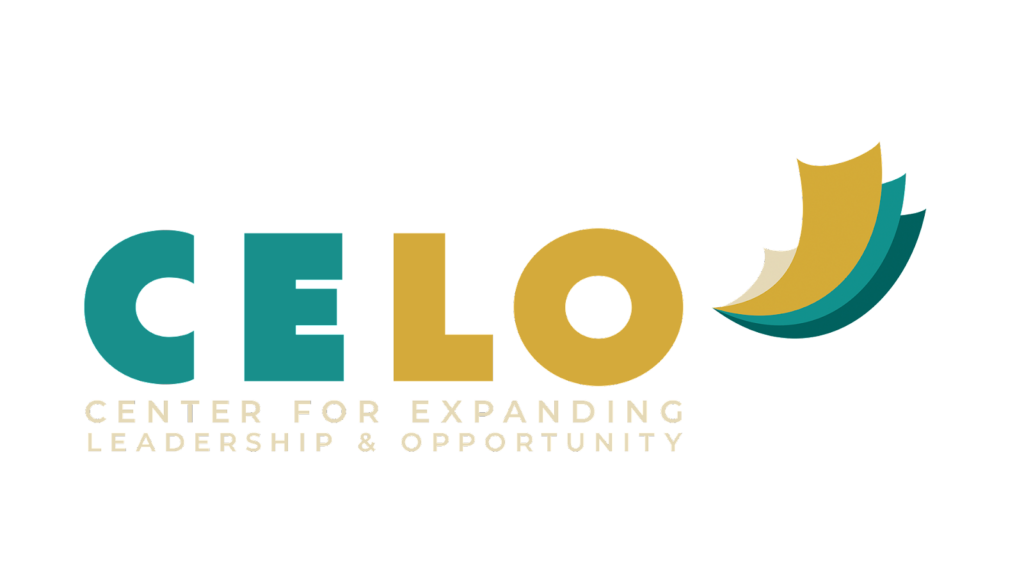
About the Index
CELO is the owner and operator of the world’s largest and longest-running research program on the building blocks of youth development – in other words, measurable steps toward developing competencies, such as resilience, collaboration, and creative-problem solving. Our research enables us to define, measure, and benchmark 34 ‘soft skills’ and has identified high impact pedagogical practices that accelerate the development of these skills.
In addition to translating our research into evidence-based strategies and recommendations to guide impact for the field of youth development, we have translated our data into user friendly assessment tools to give organizations and their leaders the unparalleled ability to measure their performance at the individual, programmatic, and/or organizational levels, including over time, and to receive actionable recommendations.
Overview of Capacities
The Index first measures your performance across six formative capacities chosen from among 30+ options defined below. It then compares your individual results with established national and career-specific benchmarks to identify your assets and opportunities for growth.
What is a capacity?
Capacities are the building blocks of human development and defined as an individual or group’s knowledge, skills, behaviors, and attitudes associated with a key human development concept (e.g., creative problem-solving, integrity). Learning to apply capacities across contexts and in varying situations is essential for effective leadership.
Each of the 30+ capacities are arranged into convenient categories essential for personal growth, organizational impact, and community transformation.
*Asterisks indicate capacities to be released at a future date.

Civic Leadership
Civic Engagement
Desire and ability to contribute to one’s community.
Generativity
Concern for future generations as well as engagement in current actions to advance the future of a community.
Social Capital Creation
Ability to develop and maintain diverse relationships across traditional boundaries for the purpose of mutual benefit in personal, community, and professional domains.
Leadership Aspirations*
Drive to engage in leadership grounded in concern about the perceptions of others and how successes and failures will be attributed to the individual.
Leadership Motivation*
Drive to engage in leadership grounded in one’s personal commitment to a group or community’s desired outcome.
Personal Leadership
Self-Awareness
Understanding of and ability to express one’s sense of self, values, and priorities.
Integrity
Alignment between convictions (i.e., beliefs, values, attitudes) and actions.
Personal Responsibility
Commitment to directing one’s energy and actions toward agreed-upon efforts.
Emotional Self-Awareness
Ability to accurately recognize one’s emotions and their influences.
Emotional Self Regulation
The ability to use emotions to inform one’s impressions of an experience while intentionally choosing actions to pursue healthy and effective ways forward.
Learning Efficacy*
Advanced cognitive abilities including critical thinking, self-directed learning, and making connections between ideas.
Interpersonal Leadership
Collaboration
Ability to envision multiple pathways in navigating systems to achieve goals.
Open-Mindedness
Receptivity to and appreciation of differing viewpoints and the advantages of engaging with them in productive ways.
Sense of Belonging
Degree to which an individual feels a sense of affiliation and connection to an organization/program.
Teaming*
Behaviors that lead to cohesive and supportive teams.
Mentoring*
Degree to which mentoring relationship focuses efficacy-building.
Role Modeling*
*Note definition is under review by scholars
Sustainable Leadership
Agency
Ability to initiate and sustain goal-directed efforts.
Leadership Efficacy
One’s internal beliefs about their likelihood of success when engaging in Leadership processes.
Resilience
Ability to persist in the midst of adversity and positively cope with stress.
Search for Purpose
Meaning-making grounded in the exploration of life’s deeper purpose.
Adaptability*
One’s comfort with, perceived benefit of, and tolerance for processes involving change.
Inclusive Leadership
Cultural Competence
Requisite awareness, values, and behaviors that enable effective communication and advocacy across cultures.
Social Perspective-Taking
Ability to take another person’s point of view and accurately infer their thoughts and feelings.
Social Change Behaviors
Enactment of values-based Leadership and civic engagement behaviors to advance the common good.
Sociocultural Discussion
Engagement with peers around compelling social and cultural issues including values stances, diversity, human rights, political perspectives, and religious beliefs.
Navigating Systems
Ability to envision multiple pathways in navigating systems to achieve goals.
Diversity Appreciation*
Appreciation for and value of diversity.
Innovative Leadership
Curiosity
Pursuit of knowledge or experiences through novel, complex, differing, or uncertain stimuli to resolve gaps, understand, and learn.
Critical Questioning
The ability to generate a variety of high-quality questions as well as strategically deploy questions to build relationships and acquire information.
Experimentation
Ability to suspend judgment by hypothesis testing through active experimentation to generate unique insights.
Perceptiveness
The ability to perceive beyond the expected using all senses to heighten awareness in a given moment or context.
Integrative Thinking
Ability to engage in non-linear thinking to make connections across traditional boundaries and seemingly unrelated phenomena.
Creative Problem Solving*
Ability to engage in meaning-making processes to foster possibility thinking as well as “seek out” and transform information into novel and useful ideas.
How To read your index report
